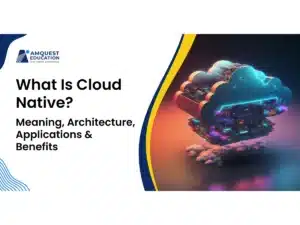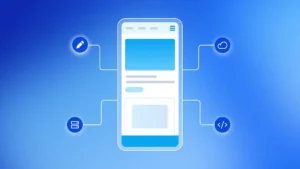Platform engineering is redefining how organizations build, deploy, and scale software. By abstracting infrastructure complexity and empowering developers with self-service tools, platform engineering accelerates delivery, enhances reliability, and elevates the developer experience. This article explores the evolution, core principles, emerging trends, and measurable impact of platform engineering—while offering actionable insights for technology leaders and engineers seeking to master this transformative discipline.
Introduction
In an era where software velocity and reliability are competitive differentiators, platform engineering has emerged as a strategic imperative. Traditional DevOps broke down silos between development and operations, but platform engineering takes this further by treating developers as customers of an internal product—the developer platform. This shift enables teams to focus on innovation rather than infrastructure, driving faster cycles, higher quality, and greater satisfaction across the engineering organization. For professionals in Mumbai and beyond, mastering platform engineering—especially with the integration of agentic and generative AI—is no longer optional. The right education, such as the comprehensive Software Engineering, Agentic AI and Generative AI course offered in Mumbai, equips engineers with the skills to lead this transformation, blending hands-on platform engineering with cutting-edge AI practices.
Background: From DevOps to Platform Engineering
DevOps revolutionized software delivery by fostering collaboration and automation. Platform engineering builds on these foundations but shifts the focus to creating a dedicated, productized internal platform that serves developers directly. This platform abstracts away the operational burden, offering standardized environments, automated pipelines, and self-service capabilities.
Key Evolutionary Shifts
- Product Mindset: Platform teams operate like product teams, continuously iterating on the platform based on developer feedback and evolving needs.
- Internal Developer Platforms (IDPs): IDPs unify CI/CD, infrastructure as code (IaC), monitoring, and security, providing a consistent, automated workflow that reduces friction and accelerates delivery.
- Developer Experience (DevEx): By prioritizing self-service and autonomy, platform engineering removes bottlenecks, allowing developers to provision environments and deploy code without waiting for operations.
- Cloud-Native and Automation: Leveraging cloud-native architectures and automation tools, platform engineering eliminates manual, error-prone processes, enabling rapid, reliable releases.
Core Principles of Platform Engineering
Platform engineering is guided by several foundational principles that distinguish it from traditional DevOps:
Key Principles
- Automation and IaC: Infrastructure should be defined as code, enabling reproducible, on-demand environments. Manual intervention is minimized to reduce friction and errors.
- Self-Service Access: Developers access tools and resources through intuitive portals, empowering them to control their workflows without gatekeepers.
- Abstraction of Complexity: The platform hides underlying infrastructure details, allowing developers to focus on writing code and delivering business value.
- Continuous Evolution: The platform is treated as a living product, with regular updates driven by real user needs and technological advancements.
- Security and Compliance: Governance is baked into the platform, ensuring consistent enforcement of policies and regulatory requirements across all stages of the lifecycle.
Latest Features, Tools, and Trends
Self-Service and Automation
Modern platforms offer self-service interfaces for provisioning infrastructure, configuring pipelines, and deploying applications. Automation—powered by IaC, CI/CD, and automated testing—reduces manual toil and accelerates time to market. For example, developers can spin up staging environments that mirror production in minutes, a task that previously took hours or days.
AI-Augmented Platform Engineering
AI is increasingly embedded in platform engineering, enabling predictive monitoring, automated incident response, and intelligent resource optimization. By 2025, AI-driven insights will be critical for scaling platform operations and maintaining high availability.
Security and Compliance Integration
Platforms integrate security scanning, policy enforcement, and compliance checks into every stage of the pipeline. Centralized management ensures that vulnerabilities are caught early and that all deployments meet organizational and regulatory standards.
Green Software Practices
Sustainability is becoming a priority, with platforms incorporating energy-efficient deployment strategies and tools to monitor and reduce carbon footprints.
Democratization Across Industries
Once the domain of tech giants like Netflix and Spotify, platform engineering is now accessible to mid-sized and smaller organizations, thanks to mature tools, open-source solutions, and cloud services.
Advanced Tactics for Platform Engineering Success
Actionable Strategies
- Treat the Platform as a Product: Continuously gather feedback from developers and iterate on the platform to ensure it meets evolving needs.
- Solve Specific Pain Points: Focus on areas where developers face the most friction, such as environment provisioning or testing, rather than rebuilding existing solutions.
- Foster Cross-Team Collaboration: Align platform capabilities with business goals by involving developers, security, and operations in platform design and governance.
- Embrace Infrastructure as Code: Automate all aspects of infrastructure to ensure reproducibility, scalability, and auditability.
- Implement Robust Monitoring: Integrate observability tools to detect issues early, minimize downtime, and support continuous improvement.
The Power of Content, Storytelling, and Community
A strong platform engineering culture thrives on shared knowledge and community. Success stories, developer testimonials, and case studies help build buy-in and drive continuous improvement. Communities of practice enable teams to exchange best practices, troubleshoot challenges, and accelerate organizational learning.
Measuring Success: Analytics and Insights
To gauge the impact of platform engineering, track metrics such as:
Key Performance Indicators (KPIs)
- Developer Velocity: Deployment frequency, lead time for changes
- System Reliability: Uptime, mean time to recovery (MTTR), incident rates
- Developer Satisfaction: Retention rates, survey feedback
- Cost Efficiency: Resource utilization, infrastructure spend
Regularly reviewing these KPIs ensures that platform investments align with business outcomes and deliver tangible value.
Business Case Study: Netflix’s Platform Engineering Journey
Netflix’s platform engineering strategy is a benchmark for the industry. Faced with the challenge of managing a complex microservices architecture at scale, Netflix built an internal developer platform that integrates diverse services and automates deployment workflows. Key tactics included:
Netflix’s Platform Engineering Strategy
- Self-Service Capabilities: Developers can provision resources and deploy code independently.
- Automated CI/CD Pipelines: Continuous integration and delivery ensure rapid, reliable releases.
- Scalable Infrastructure: The platform supports millions of users with minimal downtime.
The result: Netflix achieves unparalleled deployment velocity and system reliability, demonstrating the transformative potential of platform engineering.
Actionable Tips for Software Architects and CTOs
Strategic Recommendations
- Invest in Dedicated Platform Teams: Build cross-functional teams focused on platform development and evolution.
- Prioritize Automation and Self-Service: Reduce dependency on manual processes to accelerate delivery and improve developer satisfaction.
- Align Platform with Developer Needs: Create feedback loops to ensure the platform addresses real pain points.
- Integrate Security and Compliance Early: Design governance into the platform from the outset to minimize risk.
- Leverage AI and Analytics: Use data-driven insights to optimize platform performance and anticipate issues.
- Promote a Collaborative Culture: Encourage knowledge sharing and continuous learning across teams.
Mastering Platform Engineering: Education and Career Pathways
For engineers and technology leaders in Mumbai and across India, acquiring platform engineering skills—especially with the integration of agentic and generative AI—is a strategic career move. The Software Engineering, Agentic AI and Generative AI course in Mumbai offers a rigorous, industry-aligned curriculum that combines foundational platform engineering principles with hands-on experience in AI-powered development workflows.
Course Highlights
- AI-Led, Hands-On Learning: Practical labs cover automation, cloud-native platforms, CI/CD pipelines, and AI-driven tooling.
- Industry-Experienced Faculty: Learn from practitioners with real-world platform engineering and AI deployment expertise.
- Internships and Placement Support: Strong industry partnerships in Mumbai provide pathways to internships and employment.
- Flexible Delivery: Available both in-person and online, making advanced education accessible nationwide.
- Comprehensive Coverage: The curriculum spans platform engineering, agentic AI, generative AI, and software delivery optimization, preparing graduates for leadership roles in engineering efficiency and innovation.
This program stands out for its depth in AI integration and practical application, equipping learners with the skills needed to lead platform engineering initiatives in any organization.
Conclusion
Platform engineering is not just a technical trend—it’s a fundamental shift in how organizations deliver software. By embracing automation, self-service, and a product-centric approach, companies can unlock unprecedented gains in productivity, reliability, and innovation. For professionals seeking to lead this transformation, advanced education that blends platform engineering with agentic and generative AI—such as the comprehensive course available in Mumbai—provides the knowledge, skills, and industry connections needed to excel in the future of software delivery.
Frequently Asked Questions
Q1: How does platform engineering accelerate developer workflows?
Platform engineering automates infrastructure provisioning and deployment through self-service portals and CI/CD pipelines, reducing manual tasks and wait times, which speeds up development cycles.
Q2: What is the role of internal developer platforms in platform engineering?
IDPs unify tools, environments, and processes, providing developers with consistent, automated workflows that improve efficiency, reliability, and developer experience.
Q3: How does platform engineering relate to the evolution of DevOps?
Platform engineering builds on DevOps by creating dedicated teams and platforms that serve developers as customers, focusing on automation, self-service, and continuous platform improvement.
Q4: What are key benefits of platform engineering beyond speed?
Benefits include enhanced developer satisfaction, improved security and compliance, cost savings through resource optimization, and higher system reliability.
Q5: How is AI impacting platform engineering?
AI is increasingly used to automate monitoring, predict failures, optimize resource use, and support continuous platform evolution, making platform engineering more scalable and efficient.
Q6: What educational pathways are available for mastering platform engineering and AI?
Specialized courses, such as the Software Engineering, Agentic AI and Generative AI program in Mumbai, offer comprehensive, hands-on training in platform engineering, cloud-native development, and AI integration, with strong industry connections and practical outcomes.






